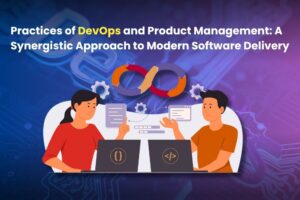Importance of DevOps Training
What is DevOps?
DevOps is a combination of software development (Dev) and IT operations (Ops). This collaborative approach aims to improve the quality as well as speed of software delivery.
- Definition and Key Principles: DevOps focuses on automation, collaboration, and continuous improvement.
- Evolution of DevOps Practices: Initially, development and operations were two separate functions with distinct goals. Over the years, organizations recognized the need for integration, leading to the rise of DevOps practices.
- Value in Modern Software Development: DevOps fosters agility by enabling rapid iterations and deployments, ultimately enhancing customer satisfaction.
Benefits of DevOps Training
Undergoing DevOps training can significantly impact both teams and individual careers.
- Enhanced Team Collaboration: Learning DevOps principles cultivates a culture of collaboration, where everyone understands their role in the software lifecycle, leading to improved communication and efficiency.
- Increased Deployment Frequency and Reliability: With effective DevOps practices, teams can deploy code more frequently without compromising stability, allowing for quicker releases and feedback loops.
- Improved Job Opportunities for Professionals: Many companies are on the lookout for skilled DevOps professionals. Completing a training program can broaden your career prospects and enhance your employability.
Why Choose Pune for DevOps Training?
Pune has emerged as a vibrant tech hub, making it an ideal location for DevOps training.
- Overview of Pune’s Tech Landscape: Home to numerous IT companies and startups, Pune boasts a thriving tech ecosystem that fosters innovation and offers various job opportunities.
- Presence of Esteemed Educational Institutes: The city is known for its reputable educational institutes that offer specialized IT training programs, including DevOps.
- Growing Demand for Skilled DevOps Professionals: As businesses increasingly adopt DevOps, the demand for well-trained professionals continues to rise, making Pune a hotspot for aspiring DevOps engineers.
Criteria for Choosing a DevOps Training Course
Finding the right training course can be challenging, but certain criteria can guide your decision.
Course Curriculum
- Key Topics Typically Covered: A comprehensive DevOps training program should include topics such as continuous integration/continuous deployment (CI/CD), version control systems, monitoring tools, and cloud services.
- Importance of Hands-On Training and Projects: Practical experience is crucial.
- Alignment with Current Industry Trends: The tech industry evolves rapidly; thus, any training course you consider should reflect current technologies and practices in DevOps.
Instructor Qualifications
- Relevance of Industry Experience: Check if the instructors have real-world experience in DevOps, as this expertise can greatly enhance the learning experience.
- Teaching Methodology and Engagement: Engaging teaching methods, including interactive sessions, can make a significant difference in your understanding and retention of the material.
- Opportunities for Mentorship: A course that offers mentorship can provide personalized guidance and support, invaluable for navigating your career path.
Certification and Accreditation
- Importance of Recognized Certification: Earning a recognized DevOps certification can enhance your resume and demonstrate your commitment to potential employers.
- Overview of Different Accreditation Bodies: Various organizations offer certifications, such as AWS, Microsoft, and Docker, each with its own focus and benefits.
- Importance of Certification After Training: Certification validates your skills as well as opens doors to better job opportunities and potentially higher salaries.
Other Considerations When Choosing a Training Course
Cost and Payment Options
- Average Cost of DevOps Training: DevOps training costs can vary, with average fees ranging widely based on the provider and course length.
- Offers of Scholarships
- Payment Plans and Installment Options
Logistics and Location
- Proximity to the Training Facility: If opting for in-person classes, consider the proximity to the training center, as it can ease your commute.
- Online Training Options: Many reputable providers also offer online training, which can be more convenient and accessible.
- Impact of Location on Learning Experience: Choosing a location that fosters a vibrant tech community can enhance your learning experience through networking opportunities.
Post-Training Support
- Availability of Job Placement Assistance: Look for training programs that offer post-training support, including job placement services that can help you secure your first role.
- Alumni Network Benefits: Being part of an active alumni network can provide ongoing support and job opportunities even after you complete your training.
- Continuous Learning Resources and Updates: An ideal training course equips you with resources for continuous learning, keeping you updated with the latest trends in DevOps.
Success Stories: Professionals Who Transitioned to DevOps
Case Study 1: Transitioning from Development to DevOps
- Background of the Individual: An experienced software developer realized the growing importance of DevOps practices and decided to enhance their skills through training.
- Steps Taken During Training: They engaged in various hands-on projects and collaborative learning environments during their course, gaining practical insights into the field.
- Current Role and Achievements: Today, they work as a DevOps Engineer in a leading tech company, significantly increasing deployment efficiency in their team.
Case Study 2: From SysAdmin to DevOps Engineer
- Background of the Individual: A system administrator with extensive experience managing servers saw the value of learning DevOps tools.
- Steps Taken During Training: They participated in a focused DevOps program that helped them transition smoothly into development workflows.
- Current Role and Achievements: Now, they are effectively bridging gaps between development and operations, sometimes using their existing skills to improve infrastructure management.
Case Study 3: First-Time Job Seekers in DevOps
- Background of the Individual: A fresh graduate, eager to enter the tech field, recognized the demand for DevOps skills and sought relevant training.
- Steps Taken During Training: They engaged in both theoretical lessons and practical projects that built their confidence and capabilities in DevOps.
- Current Role and Achievements: After completing the program, they secured a job at a startup where they continue to grow and learn in a supportive environment.
Conclusion
Selecting best DevOps training program is vital for your career advancement. By investing time and effort into acquiring these skills, you position yourself favorably in an evolving job market with promising growth potential in the DevOps field.






